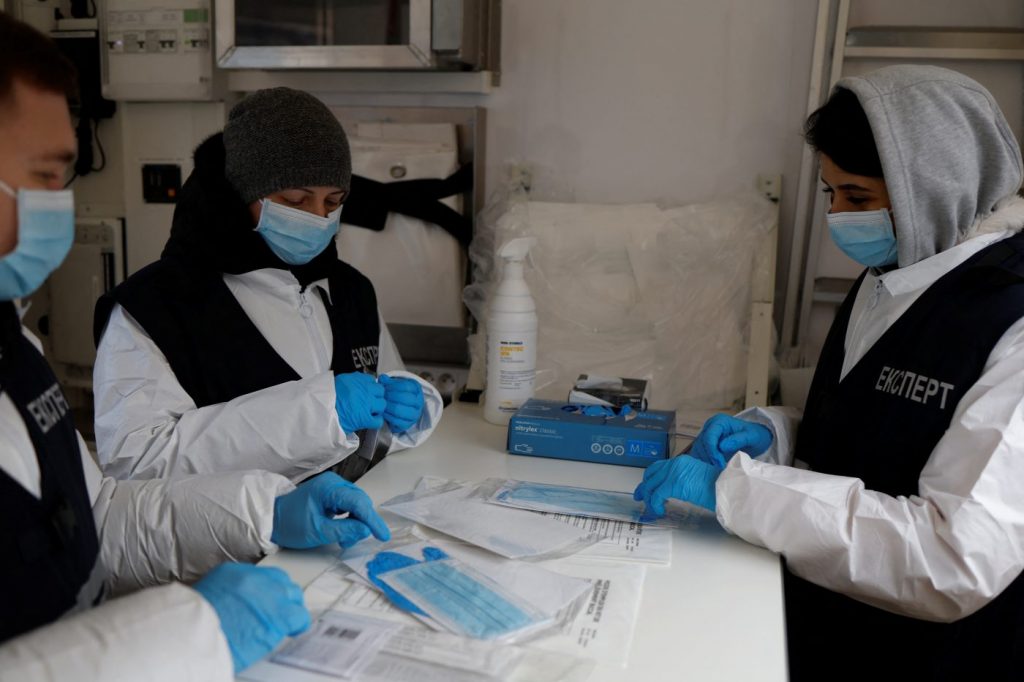The invasion of Ukraine has underscored the critical role of DNA in the pursuit of justice. International aid is now vital to help expose Russia’s crimes.
Since the Kremlin’s full-scale invasion, non-combatant casualties have mounted in Ukraine, with the United Nations reporting at least 10,000 civilian deaths, including over 500 children, and more than 18,500 injuries. The true numbers are much higher; many thousands of people are listed as missing.
The war crimes committed by Russian forces are not limited to attacks against the civilian population. Combatants have been tortured, and prisoners of war and wounded soldiers killed and grotesquely mistreated.
The brutality inflicted on the Ukrainian people presents a challenge to all legal systems to ensure justice is pursued and due process followed. One of the biggest obstacles is the collection of evidence; areas liberated to date have only highlighted the weaknesses of existing systems.
Some of the challenges relate to the circumstances of armed conflict and the lack of immediate access to the crime scene. Meanwhile, Russian servicemen have followed a pattern of destroying traces of their atrocities, frequently burning bodies, homes, and victims’ transport.
The massive volume of evidence also requires an extensive system of management as well as teams of people for its systematization and analysis.
All three issues require resources to aid evidence collection and analysis. Central to this is mobile DNA technology and databasing, which can offer unmatched precision and reliability to investigators and prosecutors.
Such expertise is at the heart of criminal proceedings and, under the Ukrainian criminal code, the majority of violent war crimes require DNA evidence.
Because of the overwhelming quantity of war crimes, the shortage of DNA laboratories and obsolete technologies at the start of the full-scale invasion have created considerable obstacles.
Since then, as a result of international cooperation, Ukraine has made significant strides in integrating rapid DNA technologies and other advanced forensic tools. These include ground laser scanning systems and a DNA laboratory donated by the United States, which started operating in February.
These resources have been critical in speeding up evidence gathering and identification, enabling the authorities to keep pace with the urgent demands of ongoing investigations.
But the scope of Russia’s atrocities, and the sheer volume of evidence, demand urgent further investment in DNA database software and hardware. Establishing a more complex system for DNA research, cross-referencing, and record-keeping would not be merely a technical enhancement but is a fundamental requirement to ensure every victim is identified and every crime documented.
Such a system would enable faster processing of samples, integration of data from multiple sources, and more robust tracking of information through the investigative process.
Advanced databases would not only help identify the remains of those killed but also strengthen legal proceedings against perpetrators through irrefutable evidence. By linking DNA evidence directly to individuals and incidents, it will be possible to construct more compelling cases.
The creation of a comprehensive and sophisticated DNA database is essential to capture the full scale of injustice and brutality inflicted during the conflict. It would serve as a critical foundation for holding the Russian Federation to account and ensuring atrocities do not go unpunished.
The international community’s continued support and investment in these forensic capabilities is vital, not just to underpin Ukraine’s quest for justice but to reinforce global commitments to human rights and international law.
Kateryna Odarchenko is a political consultant, partner of the SIC Group Ukraine, and president of the PolitA Institute for Democracy and Development.
Anna Vyshniakova is a war crimes lawyer, head of LingvaLexa, a legal NGO, and legal consultant for the Clooney Foundation for Justice.
Artem Chornomorov has been a member of the Ukrainian parliament since 2019 for President Volodymyr Zelenskyy’s Servant of the People Party.
